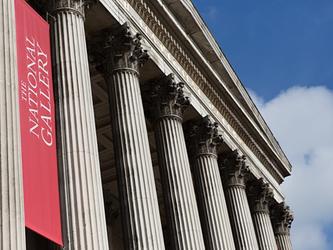Class is a social thing
The concept of social class is ingrained in British society and Britain has been marked by a large and powerful working class. Throughout the 20th Century various historians, sociologists and writers have described the role and structure of class on our society including the seminal EP Thompson’s The Making of the English Working Class.
While other European countries more widely identified with the middle class in Britain, at one time, more than half the population considered themselves working class – it was seen as an almost heroic class.
With the backdrop of British class structure established, Professor Savage then explored how the traditional market research social grades underscored how we felt about class. In 2010, 29% of the population were C1 and 21% C2. While clearly an outmoded form of classification, questions from the audience later suggested many clients still wanted their customers and audiences classified in this way.
The alternative sociological class schema of the National Statistics Socio-economic Classification moved away from the manual/non-manual work delineation – opting instead for descriptors such as ‘routine occupations'.
political allegiance to class
And as social class has become less exact, so too has political allegiance. With the breakdown of the traditional working class, has come the breakdown of the classic Labour voting territory. By 2011/12 there was little variation across the social classes as to who identified with Labour.
What has emerged in recent years has been a new class language; a lexicon where chav, hipster, elite, posh... are used to classify. So as cultural class analysis became central to the sociological debates in Britain, Professor Savage and colleagues worked with the BBC on the Great British Class Survey and what became the most popular digital social science exercise ever.
In a bid to explore cultural, economic and social aspects of class – which would be of value both in terms of current affairs and scientific interest – the survey launched in January 2011 and by the summer of that year it had 161,000 respondents. "People wanted to engage with this question of class," said Savage. GfK was also commissioned to do additional research to ensure fair representation across groups.
What was clear from the interest in the study was that it was now "the politics of classification which were at stake" said Savage. "Classification devices are themselves bound up in ‘elite accumulation’ in an era of voracious ‘knowing capitalism’." The people taking part, and buying into the survey and corresponding discussion, were, and are, more likely to be in the elite positions in society.
For instance the most over-represented occupations were CEOs, followed by business and related research professions. Hence the need for the GfK work.
Savage identified that the fundamental change that has taken place in British society in recent years has been the mass accumulation of wealth. The Elite ( household income of £89K, savings of £142K, etc) made up 7% of the GfK sample.
We are living in a society that’s more unequal and it will increase year on year
And the relative power of accumulated capital compared with current national income is increasing. So the past becomes more important, with the increasing accumulated stocks of capital having greater relative weight over current income.
"'Elite accumulation’ leads to spiralling ‘top end’ outlier effects – the more you have the more you get, it’s the cycle of advantage and it’s non-linear," said Savage, also citing how Bill Gates has earned more since he’s stopped being Microsoft CEO because of his investments.
The influence of the elite is widespread, from attendance to Russell Group universities to the best-paying, traditional occupations.
He summarised his lecture into three areas:
- the politics of classification – where people no longer feel class loyalty; there is a proliferation of class imagery, often stigmatising as an emerging powerful educated middle class powerfully mobilise their ‘emerging cultural capital’.
- the crystallisation of elite politics – new, confident wealth elite frames the political landscape and old class boundaries losing political prominence; wealth elite isn't a simple reworking of the old upper class, but a new corporate urban formation; there are spiralling and re-inforcing ‘top end effects’ where those at the apex pull away from those beneath them.
- the travails of meritocracy – mobility within the competitive education system enhances, rather than reduces class inequality as those with the greatest resources do better; the ‘class ceiling’ means the upwardly mobile tend not to reach the most elite positions; educational institutions are implicated in growing inequalities and ‘better education’ will not be a solution.
"We need to find new ways of renewing a politics of redistribution. We will not address the challenge of 21st century society without questioning meritocratic assumptions that improving access is enough," said Savage. "In general, there is more mobility [in countries] where there is less income inequality."

We hope you enjoyed this article.
Research Live is published by MRS.
The Market Research Society (MRS) exists to promote and protect the research sector, showcasing how research delivers impact for businesses and government.
Members of MRS enjoy many benefits including tailoured policy guidance, discounts on training and conferences, and access to member-only content.
For example, there's an archive of winning case studies from over a decade of MRS Awards.
Find out more about the benefits of joining MRS here.













0 Comments